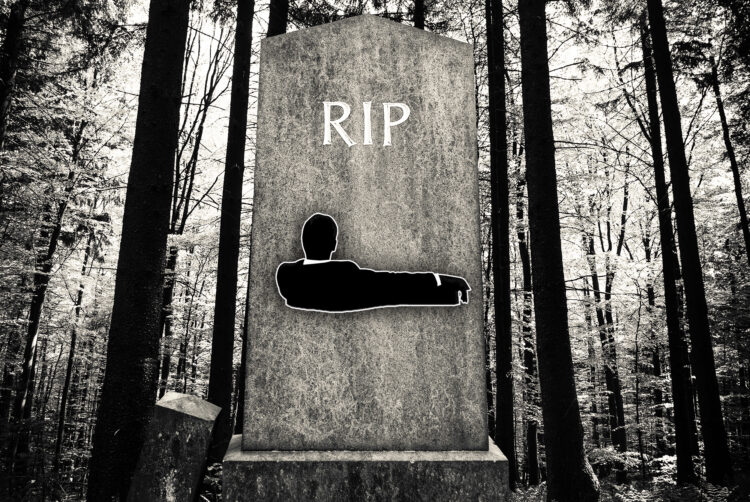The death of creativity (as a commodity)

Opinion: 100% Media 0% Nonsense
The data revolution has torn the 20th-century model of creativity trading to shreds. And media has been the huge winner.
We used to think of marketing as a creative endeavour in which great ideas were squeezed into media “buckets”.
Someone would invent a catchy slogan, craft an eye-catching design or create a memorable character, and it would would fall to a team of multi-skilled experts to create a “campaign”. The campaign would be pitched to a marketer and hopefully sold. Armed with a budget, a media agency could advise on how best to plan that campaign and how best to buy different inventory with media owners.
Does that still describe the working world that you live in? Because for many marketers and agency practitioners, the role of media has become much more profound. Audiences have fragmented and there is more data than ever before about consumers. Marketers expect real-time tactics and better proof of attribution.
Where does that leave “creativity”? Still vital, but much harder to sell.
Creative ‘not accretive to growth’
This week, I’m really excited to interview David Abraham at our Future of Brands event on Wednesday.
Abraham has a unique background: an ad agency founder (St Luke’s) who went on to run a major broadcaster (Channel 4) and then founded another agency (Wonderhood Studios).
So there are few people better-placed to ask where the power really lies in 2024 and beyond when it comes to answering what should be a simple question: how can creativity continue to flourish in advertising?
The CEO of the world’s largest advertising services conglomerate, Publicis Groupe, said the quiet part out loud last year when Arthur Sadoun told Campaign that “[I]n the industry, creative is today not accretive to growth”.
Maybe that’s why, as I remarked in a recent column, you’d be hard pressed to find the word “advertising” anywhere near the websites of Publicis and its holding company rivals.
So then we need to ask: where is creativity actually coming from?
Oversupply
One of the many stories you might have missed over Easter is that Cannes Lions is, for the first time this year, introducing a “Creator Pass” — a four-day pass with a “specifically crafted two-day programme for creators”.
The marketing material says (with my italics): “For over 70 years, we’ve seen how the best creative work is only the result of the inspiring creators behind it. This year, Cannes Lions is providing the destination for the next generation of social media creators to meet, connect and make history.”
Clearly, the world’s biggest advertising awards’ organisers recognise that brands are going beyond traditional agencies to buy creativity. Sadoun is right: creative is not accretive to growth for businesses like his any more because there are simply too many suppliers: creative agencies, production studios, freelance creative directors, influencers, digital marketing agencies, in-house creative teams, media owners’ in-house agencies…
“Oh, but wait,” the ghost of Don Draper says, “you still need creative specialists… just because everyone can buy a pen doesn’t make everyone a great writer.”
Of course, that’s right. But creativity is still a commodity. What I’m doing right now — “writing” — has become a commodity because I (an employee of a B2B publisher) want you to read it via our website and our newsletter products. And, once commoditised, there is a market with prices to reflect what buyers and sellers of creativity are willing to pay for.
The fact that someone like Sadoun can say “creative is not accretive to growth” is a dead giveaway that advertisers are prepared to pay less for creativity as a commodity.
It’s the data, stupid
A lot of people look at the decline of agencies and lament how marketers have become too focused on “performance” or short-term, lower-funnel marketing activity that pushes already-interested consumers over the line to buy something, as opposed to “brand-building” that can unlock far more sales revenue in the long term by creating customer loyalty and permission to charge higher prices.
That has always seemed a really basic way to look at advertising in 2024. I would give most marketers credit for knowing that you broadly need both brand and performance if you care about long-term growth and market share.
What the “brand vs performance” dualists perhaps fail to recognise is that, to borrow one of the most overused marketing slogans of all time: “It’s the data, stupid.”
Over the last decade, advertisers have been investing in tools and talent that can help them make more sense of all this data they have about their customers. This has led to a quiet revolution in the advertising world, which used to be reliant on media owners selling their audiences to brands and brand strategists who would be experts in “culture” to help advertisers understand audiences better.
The data is giving brands all sorts of information about what people want to buy, as well as when, where and how they want to buy it. Compare that with traditional market research, which simply asks people if they would buy it. I don’t know about you, but I’d rather know what someone actually does as opposed to what they are telling a researcher they might do.
And when you look around this industry, it’s the media agencies, not the creative agencies, that are better-placed to help advertisers on that data journey. Media agencies are generally the ones with the resources and experience to handle and interpret large datasets, as well as offer strategy around data-led campaigns where the execution will determine the creative message, not the big idea, because data points will change an ad’s content in real time.
If the medium is the message, perhaps the media agency was always destined to be the lead messenger.
Incentives
I recently spoke to a creative effectiveness measurement company boss who revealed he barely spoke to any ad agencies; he mostly speaks to big media agencies and media owners.
“The ad agencies still seem obsessed with talking about 30-second TV ads,” he said. “Which is fine, that’s still important… but you wonder if they’re incentivised to win awards more than they are to think about where their consumers are actually seeing advertising all day.”
Does that mean an advertiser might not own as many “brilliant” creative ideas as they once did? Very likely, yes. Does that mean that most advertising becomes forgettable? Absolutely.
But does that mean marketing becomes less effective? We’re about to find out.
 Omar Oakes is editor-in-chief of The Media Leader
Omar Oakes is editor-in-chief of The Media Leader
100% Media 0% Nonsense is a weekly column about the state of media and advertising. Make sure you sign up to our daily newsletter to get this column first in your inbox every Monday, as well as key updates with what’s happening at The Media Leader and our upcoming events.
The Future of Brands: What I’ll be doing this week
Creativity and media: Reconciling?
I’ll speak to a media agency exec, EssenceMediacom’s executive creative director, Tom Curtis, and celebrated creative director Laura Jordan Bambach, about how agencies are adapting to meet modern-day brands needs.
Curtis is an ECD at a media agency — unusual by traditional standards but more familiar to GroupM’s MediaCom (now EssemceMediacom), which first launched a creative practice 20 years ago. Jordan Bambach was previously chief creative officer at Grey and has just launched an agency, Uncharted, with two other female co-founders.
What does it take to bring creativity and media back together again?
I’ll then interrogate how brands are navigating the agency ecosystem and what they want from services providers as they juggle creative demands for a modern media ecosystem.
My panel features Sally Weavers, co-founder of creative media agency Craft Media, Olya Dyachuk, global media and data director at Heineken, and Sebastien Bourne, head of media north west and central Europe at HP.
The Big Interview: David Abraham, Wonderhood Studios
David Abraham is founder and group CEO of Wonderhood Studios and former CEO at Channel 4. We will dig into the modern world of brands and the evolving role of the agency.
The BBC has touched the third rail by launching UK ads. But why?
Forbes’ seven-year MFA scheme shows how deep the rot runs in online advertising



